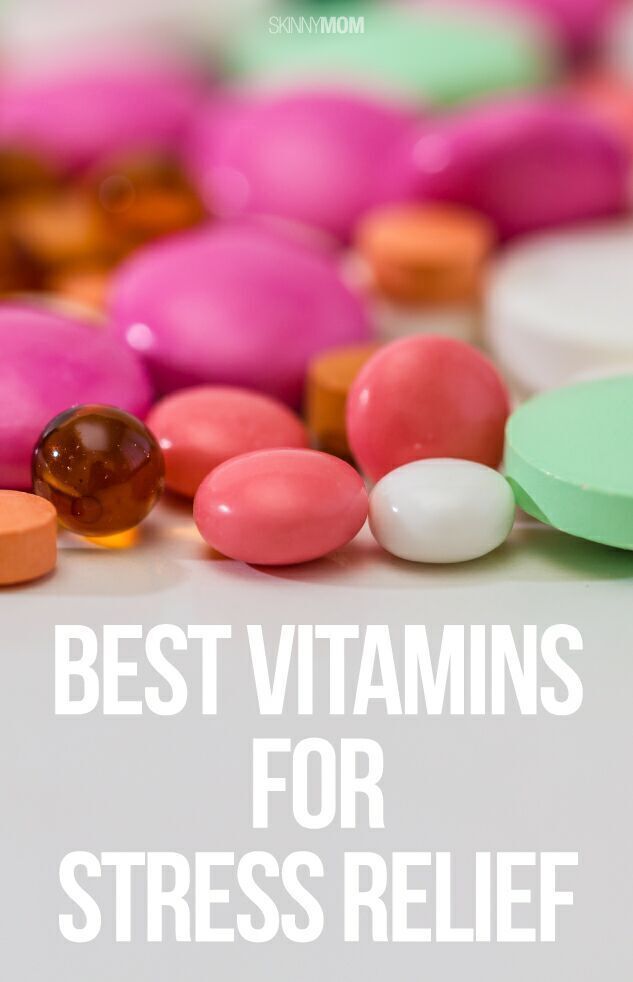Introduction to Vitamins for Stress
In today’s fast-paced world, stress has become a prevalent issue affecting many individuals. While lifestyle changes and stress management techniques can help alleviate stress, certain vitamins and supplements may also play a role in promoting relaxation and overall well-being. In this comprehensive guide, we will explore seven vitamins recommended by experts for managing stress and anxiety.
Vitamin B Complex
Overview
Vitamin B complex includes a group of eight B vitamins that play essential roles in energy metabolism and neurotransmitter synthesis. B vitamins are crucial for maintaining a healthy nervous system and may help combat stress by supporting the body’s response to stressors.
Benefits
- Supports healthy nervous system function
- Helps convert food into energy
- May reduce symptoms of anxiety and depression
Recommended Dosage
The recommended dosage of vitamin B complex varies depending on individual needs and health status. However, a typical dosage may range from 50 to 100 mg per day.
Vitamin C
Overview
Vitamin C, also known as ascorbic acid, is a powerful antioxidant that plays a key role in immune function and collagen synthesis. Research suggests that vitamin C may also have stress-relieving properties by reducing cortisol levels and supporting adrenal gland function.
Benefits
- Acts as a potent antioxidant
- Supports immune system function
- May reduce cortisol levels and improve stress response
Recommended Dosage
The recommended daily intake of vitamin C for adults is 75 to 90 mg for females and 90 to 120 mg for males. However, during times of stress or illness, higher doses may be beneficial, ranging from 500 mg to 2000 mg per day.
Magnesium
Overview
Magnesium is an essential mineral involved in over 300 biochemical reactions in the body, including muscle and nerve function, energy production, and stress regulation. Research suggests that magnesium deficiency may contribute to increased stress levels and anxiety.
Benefits
- Supports muscle and nerve function
- Promotes relaxation and stress relief
- May improve sleep quality
Recommended Dosage
The recommended daily allowance (RDA) of magnesium varies by age and gender but typically ranges from 300 to 400 mg for adults. However, some experts recommend higher doses, up to 600 mg per day, for individuals experiencing stress or anxiety.
Vitamin D
Overview
Vitamin D, often referred to as the “sunshine vitamin,” plays a vital role in bone health, immune function, and mood regulation. Research suggests that vitamin D deficiency may be linked to an increased risk of depression and anxiety disorders.
Benefits
- Supports immune system function
- Regulates mood and emotional well-being
- May reduce symptoms of depression and anxiety
Recommended Dosage
The recommended daily intake of vitamin D varies depending on factors such as age, sun exposure, and geographic location. However, many experts recommend a daily intake of 800 to 1000 IU for adults to maintain optimal levels.
Omega-3 Fatty Acids
Overview
Omega-3 fatty acids, particularly EPA (eicosapentaenoic acid) and DHA (docosahexaenoic acid), are essential fats found in fatty fish, flaxseeds, and walnuts. These fatty acids play a crucial role in brain health and may help reduce symptoms of anxiety and depression.
Benefits
- Supports brain health and cognitive function
- Reduces inflammation in the body
- May improve mood and reduce symptoms of anxiety
Recommended Dosage
The recommended dosage of omega-3 fatty acids varies depending on the individual’s age, health status, and dietary habits. However, many experts recommend consuming 250 to 500 mg of combined EPA and DHA per day for general health and stress management.
Ashwagandha
Overview
Ashwagandha is an adaptogenic herb used in traditional Ayurvedic medicine to promote resilience to stress and enhance overall well-being. Research suggests that ashwagandha may help reduce cortisol levels, improve stress response, and alleviate symptoms of anxiety and depression.
Benefits
- Acts as an adaptogen to support stress resilience
- Reduces cortisol levels and promotes relaxation
- Improves mood and emotional well-being
Recommended Dosage
The recommended dosage of ashwagandha extract varies depending on the specific product and individual needs. However, typical dosages range from 300 mg to 600 mg per day, taken in divided doses.
L-Theanine
Overview
L-Theanine is an amino acid found naturally in tea leaves, particularly in green tea. It is known for its calming effects on the brain and may help promote relaxation and reduce symptoms of stress and anxiety without causing drowsiness.
Benefits
- Promotes relaxation and stress relief
- Improves focus and attention
- Enhances mood and cognitive function
Recommended Dosage
The recommended dosage of L-theanine varies depending on individual needs and sensitivity. However, typical dosages range from 100 mg to 200 mg per day, taken as needed to support stress management.
FAQs About Vitamins for Stress
Can vitamins alone cure stress and anxiety?
While vitamins and supplements can play a role in managing stress and anxiety, they are not a cure-all solution. It’s essential to address underlying factors contributing to stress and incorporate lifestyle changes, such as exercise, relaxation techniques, and healthy dietary habits, for comprehensive stress management.
Are there any potential side effects of taking these vitamins?
Most vitamins and supplements are safe for the majority of people when taken at recommended dosages. However, some individuals may experience side effects such as digestive discomfort, allergic reactions, or interactions with medications. It’s essential to consult with a healthcare professional before starting any new supplement regimen.
Can vitamins for stress be taken together?
Many vitamins and supplements for stress can be taken together safely. However, it’s essential to be mindful of potential interactions between certain nutrients or medications. Consulting with a healthcare provider can help determine the best combination of supplements for individual needs.
How long does it take to see results from taking vitamins for stress?
The timeline for experiencing benefits from vitamins and supplements for stress varies depending on factors such as individual biochemistry, dosage, and consistency of use. Some people may notice improvements in mood and stress levels within a few weeks, while others may require more extended periods of supplementation.
Are there any lifestyle changes that should accompany taking vitamins for stress?
In addition to taking vitamins and supplements, adopting healthy lifestyle habits is essential for effective stress management. This includes regular exercise, adequate sleep, stress-reducing activities such as meditation or yoga, and maintaining a balanced diet rich in whole foods.
Can children and adolescents take vitamins for stress?
While vitamins and supplements may benefit individuals of all ages, it’s crucial to consult with a pediatrician or healthcare provider before giving them to children or adolescents. Dosages and safety considerations may vary based on age and developmental stage.
Are there any dietary sources of these vitamins that can help reduce stress?
Many of the vitamins and nutrients discussed in this guide can be obtained through dietary sources. For example, vitamin B complex can be found in foods such as whole grains, lean meats, and leafy greens, while vitamin C is abundant in fruits and vegetables like oranges, strawberries, and bell peppers. Incorporating a variety of nutrient-rich foods into your diet can help support overall health and stress management.
Conclusion
Managing stress is essential for maintaining overall health and well-being. While lifestyle changes and stress management techniques are crucial, certain vitamins and supplements may also offer additional support. By incorporating these seven vitamins into a balanced diet and lifestyle, individuals can promote relaxation, reduce symptoms of stress and anxiety, and improve overall resilience to life’s challenges. As always, it’s essential to consult with a healthcare professional before starting any new supplement regimen to ensure safety and efficacy.
- The Evolution Of Graysexuality And Its Influence On Modern Dating Trends - June 1, 2025
- Profhilo Treatment Near Selhurst, Surrey - May 31, 2025
- THC Seltzers And How To Enjoy Them Responsibly - May 30, 2025

